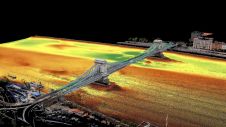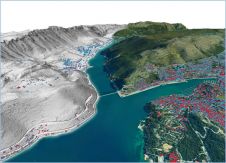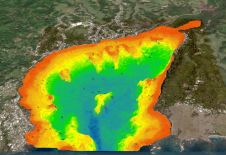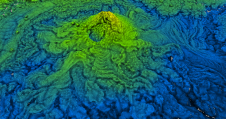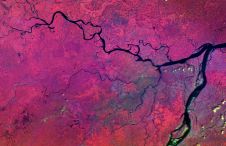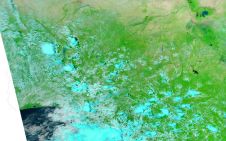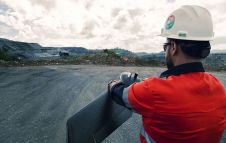Geo-economics
Geographical analysis must form the basis of any strategy for economic development of a region. Jeffrey Sachs, director of the Earth Institute at Columbia University in New York and writer of best-sellers The End of Poverty and Common Wealth , Economics for a Crowded Planet is clear on this point. The role of geography, geo-information or geospatial analysis cannot be overestimated as a determining factor in today’s policy-making for a better world.
Sachs, in a keynote speech to the congress of the American Association of Geographers in Boston on 15th April, described six areas where geography in its many aspects plays an important role in world economic development. The first is food production: for instance, variety of seeds, crops and irrigation. The second is transport or access: coastal areas have a clear advantage over inland areas thanks to their better overseas access. The third is the disease burden of a region, country, or even a continent. All necessary economic measures may be taken to develop Africa, but unless something is done to alleviate the epidemics of Aids and malaria, nothing will work. And fourth, physical hazards should be taken into consideration; deltas vulnerable to flooding and coastal areas at risk of hurricane are less likely to develop than safer areas. Sachs puts natural resources number five on his list; the presence of coal-fields (think of Wales or the Ruhr district in Germany) can help a region develop. And the last factor, but certainly not least in importance, is the geography of geo-politics. Natural boundaries, rivers, ice-free harbours - all are features that have and will continue to have an effect on economic development. None of these factors work in isolation; in collaboration they form negative or positive conditions for a growing economy, and thus in the latter instance an escape from poverty for the inhabitants of a region, in the former the prospect of ongoing misery.
A great deal of current planning and policy-making, decisions regarding economic aid for regions, fails to take into account physical and environmental factors. Moreover, according to Sachs economists are trained to set aside considerations relating to the physical world. Yet with all the techniques in geo-visualisation now at our disposal, geo-information can and should take a leading role in fast and easy analysis of economic development. GIS as an integral part of the economy… geo-economics?!
This may all sound pretty obvious to geographers, GIS professionals and others in geomatics, but it is clearly far from evident to the outside world of economists, consultants and advisors. Jeffrey Sachs, a leading international economic advisor to, among others, United Nations secretary-general Ban-Ki Moon and his predecessor Kofi Annan, is working on getting the message across. The geomatics community should make it their mission to help him.
Durk Haarsma, publisher, durk.haarsma@reedbusiness.nl
Make your inbox more interesting.Add some geo.
Keep abreast of news, developments and technological advancement in the geomatics industry.
Sign up for free





